2024 Conference on General Education, Pedagogy, and Assessment
Plenary Sessions
Opening Plenary
Thursday, April 11, 2024 / –
The Magic Words: Using Poetry Prompts to Unlock Courage and Creativity in the Gen Ed Classroom

Joseph Fasano
Poet, Novelist, and Lecturer in the Division of Writing, Literature, and Languages, Manhattanville College
Joseph Fasano, MFA, is a poet, novelist, songwriter, and educator. His honors include the Cider Press Review Book Award, the Rattle Poetry Prize, and a nomination for the Poets' Prize, "awarded annually for the best book of verse published by a living American poet two years prior to the award year." His books include The Swallows of Lunetto, The Dark Heart of Every Wild Thing, The Crossing, Inheritance, Vincent, Fugue for Other Hands, and The Last Song of the World. His writing has been widely translated, anthologized, and published in leading journals including The Times Literary Supplement, The Yale Review, Boston Review, Missouri Review, Tin House, and American Poets Magazine. He has served on the Editorial Board of Alice James Books and taught at Columbia University, SUNY Purchase, and Manhattanville College, where he is currently a Lecturer in the Division of Writing, Literature, and Languages. His book of poetry prompts and exercises, The Magic Words, will be published in March 2024 by TarcherPerigee, an imprint of Penguin Random House.
Friday Morning Plenary Panel
Friday, April 12, 2024 / –
The Courage to Collaborate: The Teagle Foundation’s Cornerstone: Learning for Living Initiative

Andrew Delbanco
President, The Teagle Foundation
Andrew Delbanco is the president of The Teagle Foundation, and he has served on its Board of Directors since 2009. Since 1985, he has taught at Columbia University, where he is the Alexander Hamilton Professor of American Studies. Mr. Delbanco earned his A.B., A.M., and Ph.D. degrees from Harvard University.
Mr. Delbanco’s most recent book, The War Before the War: Fugitive Slaves and the Struggle for America’s Soul from the Revolution to the Civil War (Penguin Press, 2018), was named a New York Times notable book. It was awarded the Anisfield-Wolf prize for “books that have made important contributions to our understanding of racism and human diversity” and the Mark Lynton History Prize, sponsored by the Columbia Journalism School and the Nieman Foundation at Harvard, for a work “of history, on any subject, that best combines intellectual or scholarly distinction with felicity of expression.”
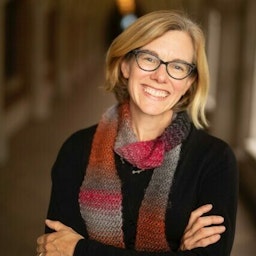
Sarah Igo
Andrew Jackson Professor of History and Dean of Strategic Initiatives, Vanderbilt University
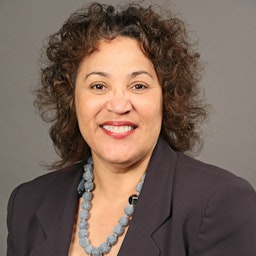
Cassandra Newby-Alexander
Endowed Professor of Virginia Black History and Culture, Norfolk State University
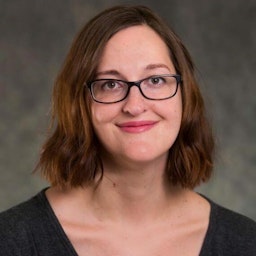
Amanda Tucker
Professor of English and Co-Director of the Helios Program for Integrated Liberal Arts, University of Wisconsin-Platteville
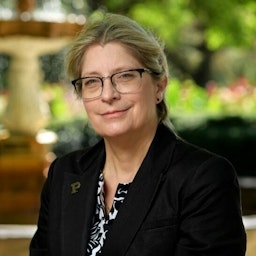
Melinda S. Zook
Germaine Seelye Oesterle Professor of History and Director of Cornerstone Integrated Liberal Arts, Purdue University
Friday Afternoon Plenary
Friday, April 12, 2024 / –
Holding Up a Mirror to Higher Education: Student Perspectives on the Undergraduate Experience
A Student Panel Moderated by Beth McMurtrie, Senior Writer, The Chronicle of Higher Education
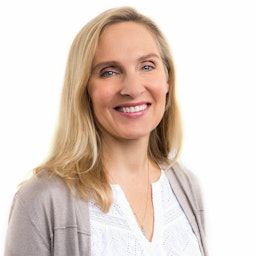
Beth McMurtrie
Senior writer, The Chronicle of Higher Education
Beth McMurtrie is a senior writer for The Chronicle of Higher Education, where she writes about the future of learning and technology’s influence on teaching. In addition to her reported stories, she helps write the weekly Teaching newsletter about what works in and around the classroom. She has been with The Chronicle since 1999 and has written about many facets of higher education, including campus culture, international education, student success and curricular reform. McMurtrie holds a bachelor’s degree in economics from Wellesley College and a master’s degree in journalism from Columbia University.
Closing Plenary
Saturday, April 13, 2024 / –
Liberate Your Leadership: Sustaining Courageous Change Amidst Resistance
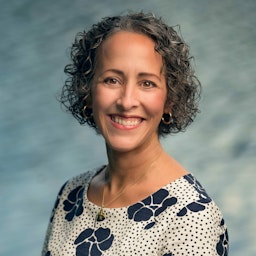
Annmarie Caño
Professor of Psychology, Gonzaga University
Annmarie Caño, Ph.D. is a professor of psychology at Gonzaga University where she formerly served as dean of the college of arts and sciences. She is also a licensed clinical psychologist and Board Certified Coach who supports leaders to act courageously and with humility to cultivate healthier work environments in which everyone can thrive. Dr. Caño’s work as an academic leader is informed by more than 20 years of experience in higher education, including as a sought after teacher and a principal investigator on National Institutes of Health grants. She is a Fellow of the American Psychological Association in two divisions (Society for Health Psychology, Society for Couple and Family Psychology). Dr. Caño draws from her lived experiences as a Latina and a first-generation college student to support leaders who wish to engage in personal, systemic, and structural changes that can liberate the workplace from harmful and exclusionary practices. Dr. Caño earned her bachelor’s degree in psychology from Princeton University (1993), and master’s (1995) and doctoral (1998) degrees in psychology from Stony Brook University. Prior to joining Gonzaga, Dr. Caño served as a professor and academic administrator at Wayne State University. Her administrative career included leading curriculum assessment efforts in her home department. She enjoys exploring the American Northwest with her family and is writing a book on liberatory academic leadership with Johns Hopkins University Press.
Opening Plenary for Virtual Capstone
Wednesday, April 17, 2024 / –
Teaching with AI: How to Approach Our New Era of Human Learning
Artificial Intelligence (AI) is going to change our relationship with thinking, creativity, and work. Critical thinking and a liberal arts education will increase in importance as a result, but its nature will undoubtedly evolve. Liberal arts educators have long posited that asking good questions matters more than providing good answers. AI exaggerates the difference between the two substantially. Large language models are designed to produce an average result: AI is the new C work. Teachers will need to articulate better what quality work or thinking is. With our new cheap assistants, we (and our students) will soon be asked to do faster and better work. This session will propose new models for assignments, policies, and curriculum and allow participants time to create their own in the context of their institution and discipline.

José Antonio Bowen
Senior Scholar, AAC&U
José Antonio Bowen has been leading innovation and change for over 40 years at Stanford, Georgetown, and the University of Southampton (UK), then as a dean at Miami University and SMU and as President of Goucher College. His book Teaching Naked: How Moving Technology out of your College Classroom will Improve Student Learning (2012) won the Ness Award for Best Book on Higher Education from the American Association of Colleges and Universities). It was followed by Teaching Naked Techniques: A Practical Guide to Designing Better Classes with C. Edward Watson (2017) and Teaching Change: How to Develop Independent Thinkers using Relationships, Resilience and Reflection (2021). After twenty years of innovation educational leadership, he was awarded the Ernest L. Boyer Award (for significant contributions to American higher education) from the New American Colleges and Universities and is now a senior fellow for the American Association of Colleges and Universities.

C. Edward Watson
Associate Vice President for Curricular and Pedagogical Innovation and Executive Director for Open Educational Resources and Digital Innovation, AAC&U
C. Edward Watson is the Associate Vice President for Curricular and Pedagogical Innovation and Executive Director of Open Educational Resources and Digital Innovation for the American Association of Colleges and Universities (AAC&U). There, he leads programming and a scholarly agenda that focuses on general education, teaching and learning practice, and evidence-based instruction enhanced by technology. For the latter, key foci include artificial intelligence (A.I.), digital equity, and open learning. Prior to joining AAC&U, Dr. Watson was the Director of the Center for Teaching and Learning at the University of Georgia (UGA) where he led university efforts associated with faculty development, TA development, student learning outcomes assessment, learning technologies, and the Scholarship of Teaching and Learning. He also taught a range of courses on College Teaching, Student Learning, and Course Design and continues to serve as a Fellow in the Louise McBee Institute of Higher Education at UGA.